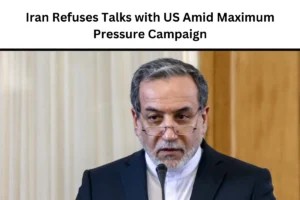
Ayatollah Ali Khamenei, Iran’s Supreme Leader, has issued a direct order for Iran to strike Israel in retaliation for the assassination of Hamas leader Ismail Haniyeh in Tehran. This report comes from the New York Times, which cites three Iranian officials, including two members of the Revolutionary Guards.
Khamenei delivered the order during an emergency session of Iran’s Supreme National Security Council on Wednesday morning, shortly after Iran confirmed Haniyeh’s death.
Both Iran and Hamas have accused Israel of the assassination. Israel, currently engaged in a conflict with Hamas in Gaza, has neither confirmed nor denied involvement in Haniyeh’s killing, who was in Tehran for the inauguration of Iran’s new president.
also read: Hamas Leader Ismail Haniyeh Killed in Israeli Strike in Iran
Israel has a history of targeting its adversaries abroad, including Iranian nuclear scientists and military leaders, according to the New York Times.
Throughout the nearly ten-month-long conflict in Gaza, Iran has maintained a strategic balance, increasing attacks via its allies and proxies while avoiding full-scale war with Israel.
In April, Iran launched its most significant and overt attack on Israel, firing hundreds of missiles and drones in retaliation for an Israeli strike on its embassy compound in Damascus that killed several Iranian military commanders.
It remains uncertain how aggressively Iran will respond this time, as military commanders consider a mix of drone and missile attacks on military sites near Tel Aviv and Haifa, deliberately avoiding civilian targets, the officials reported.
A coordinated assault involving Iranian and allied forces from Yemen, Syria, and Iraq is also under consideration for maximum impact, the officials added.
Khamenei, the ultimate authority on all state matters and the commander in chief of the armed forces, has instructed military leaders to prepare for both offensive and defensive operations in case the conflict escalates and Israel or the US retaliate.
In his public address regarding Haniyeh’s death, Khamenei emphasized Iran’s intention to retaliate, declaring, “avenging his blood is our duty,” given that the killing occurred on Iranian soil. He warned that Israel is poised to receive “a severe punishment,” as reported by the New York Times.
Other Iranian leaders, including newly elected President Masoud Pezeshkian, the foreign ministry, the Revolutionary Guards, and Iran’s mission to the UN, have also affirmed that Iran will retaliate against Israel and defend its sovereignty.
Iran, alongside regional allies Hamas, Hezbollah in Lebanon, the Houthis in Yemen, and multiple militias in Iraq, constitutes what is known as the “axis of resistance.”
Leaders from these groups were in Tehran for Pezeshkian’s inauguration on Tuesday.
Haniyeh was assassinated around 2 a.m. local time, following the inauguration ceremony and a meeting with Khamenei. The assassination shocked Iranian officials, who viewed it as a severe breach of security.
According to the New York Times, the incident represented a significant security failure for Iran, which prides itself on strength but has struggled to prevent Israeli covert operations within its borders. The humiliation was intensified by Haniyeh’s prominence, the presence of other allies, and the attack occurring in a secure Revolutionary Guards guesthouse during heightened security in the capital.
Analysts suggest that Tehran views retaliation as essential for both avenging Haniyeh’s killing and deterring future Israeli attacks on high-profile targets like Hezbollah leader Hassan Nasrallah or Quds Force commander General Ismail Qaani.
“Iran likely believes it has no choice other than retaliating to deter further Israeli attacks, defend its sovereignty, and preserve its credibility in the eyes of its regional partners,” said Ali Vaez, Iran director at the International Crisis Group.







